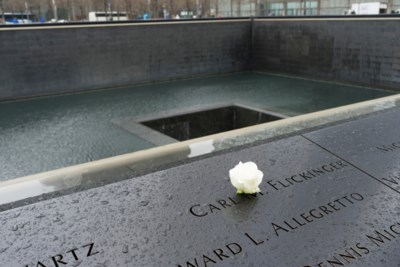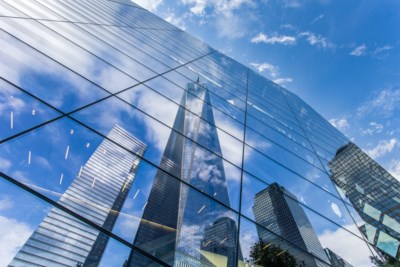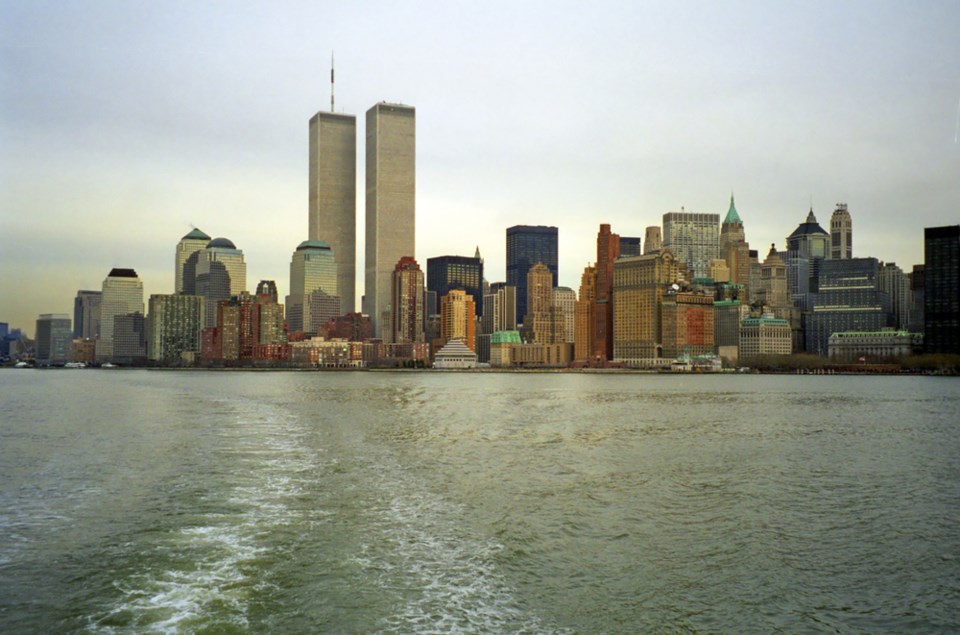I was living with my parents on Sept. 11, 2001 while attending what is now Thompson Rivers University. I got up that fall morning, prepared for the day as usual and went upstairs for breakfast.
As I walked into the living room I noticed my dad sitting on the couch in front of the TV with tears silently pouring down his face. Alarmed, my focus shifted to the news flashing on the screen just in time to see the second plane collide with the South Tower of the World Trade Centre buildings.
It felt like everything outside of Manhattan went silent that day as the towers continued to fall, burn and devastate while the world as we knew it immediately began to change forever.
Every year on the anniversary of 9/11 there are people who like to trumpet conspiracy theories: the American government was actually behind the events, it was all just an excuse to start a war to access oil, the second tower couldn’t possibly have collapsed as it did without insider assistance, explosions (and not aircrafts) caused the collapse of the buildings, etc. That’s fine, people are entitled to dig down and try to unearth what seems suspicious or inexplicable to them, but what I would rather talk about today is what we can learn from America’s response to 9/11. After all, doesn’t that have more value 18 years post-event than the same well-worn paths of paranoia?
 The 9/11 Memorial Pool in a gloomy day in New York City, NY on April 22, 2018. (via Shutterstock)
The 9/11 Memorial Pool in a gloomy day in New York City, NY on April 22, 2018. (via Shutterstock)In airports after 9/11, we started arriving for flights hours earlier than ever before, leaving liquids at the gate, handing our baby seats over to be swabbed, getting full-body X-rays and looking sideways at people who didn't share our skin colour. It wasn’t enough that the events of that day took thousands of innocent lives; in their wake, we were also robbed of individual freedoms and trust in each other, while the American response guaranteed that the body count would continue to rise.
In its report “Cost of War,” Brown University says that as of November 2018, “All told, between 480,000 and 507,000 people have been killed in the United States’ post-9/11 wars in Iraq, Afghanistan and Pakistan” and that doesn’t even include the other estimated half-million lives lost in Syria, indirect deaths (the result of displacement, disease, poverty, etc.) or all of the lives that have been stolen in the fallout in the year since that report.
It leaves me wondering: In response to 9/11, how many lives were saved by taking off our shoes in airports, and how many were lost by putting “boots on the ground?”
It is a large-scale, powerful reminder that while there will always be people who will seek to irrevocably wound us, exploit our weaknesses and rally our terror, we can never forget that the response we choose when combating what is wrong must be to do what is right.
Of course, increasing airport security was necessary and a show of strength was probably needed too, but being drawn into a nearly two-decade-long military conflict on foreign soil that would kill soldiers, children, reporters, bystanders and enemies alike was not. But — much like in our personal lives — although America had just learned a painful lesson themselves, they immediately forgot it.
After 9/11 America came together, linked up, rallied through the pain, rebuilt and then went out and inflicted the same death and destruction on foreign soil that had devastated them at home.
 The Freedom Tower in New York City reflecting in the mirrored facade of the 9/11 memorial museum. (via Shutterstock)
The Freedom Tower in New York City reflecting in the mirrored facade of the 9/11 memorial museum. (via Shutterstock)There comes a point when we all have to lay our weapons down and remember that changing the world begins with loving the people who live within our own four walls, but it must then move into the offices/drive-thrus/grocery stores/roadways that we share, the politics and ideals we debate, the communities we live in, the cities we call home and then extend beyond our borders.
Time and again we see throughout human history, both in our homes and in our world, that when we seek to destroy those we see as enemies regardless of cost or consequence, no one wins and everyone loses.
Fifteen years later, in the fall of 2016, I was able to see Ground Zero for myself, now commemorated and beautified with the 9/11 Memorial; an oasis of reverent calm that washes over everyone who walks that decimated and consecrated ground while nothing but the sound of the waterfalls rushes in your ears in the middle of Manhattan.
You can place your hands over the names of the people who died in that horrific violence and press each hollow letter punched through the steel into your fingertips and momentarily carry them with you; if only we could hold all of the names of the nearly 3,000 lives lost that day, and the million-plus since in our hearts as well.
It might only be a theory that world peace is achievable, but it is a definite fact that there will only ever be peace when we learn to conspire a little less and love a little more, and talking about that might just be a better response today than anything else at all.
Katie Neustaeter is a professional writer with a background in broadcasting and owner of Refraction Communications. Katie is also a multiple Kamloops Readers Choice award winner in categories including Influencer, Volunteer and Personality. She also really loves candy. As a community advocate who is passionately engaged in her region, Katie explores a wide range of topics in her column Refraction with the purpose of promoting healthy public discourse.



